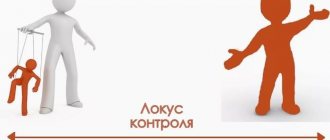- Age-related characteristics of self-education
- Stages of self-knowledge
In this article we will consider the main issues related to self-education: what it is, the stages of its formation and development, age-related characteristics of the process. The first question is: what is self-education in general?
Definition 1
Self-education is a conscious activity of a person, which is aimed at realizing himself as an individual. For self-education to become possible, a person must already have formed ideals, personal moral qualities and conscious goals.
The problem of self-education was studied by B. Bondarevsky, A. Aret, A. Kochetov, A. Bodalev, A. Kovalev and other world-famous scientists. There are many options for deciphering the term:
- In the “Theory of Self-Education”, written by L. Ruvinsky, self-education is defined as a conscious activity, the purpose of which is to change and improve one’s personality.
- According to A. Kochetov, self-education is deciphered as awareness and the desire to meet the requirements of others, while the individual’s goal is to realize strength and abilities. What a person strives for will determine the goals of self-education, and in order to achieve them, a person must be guided by an objective assessment of himself. Self-education makes it possible to get rid of bad traits, develop the necessary personal qualities, and develop hidden potential.
The goals of self-education can be divided into 2 groups:
- General, when a person wants to develop facets of his personality, master professional knowledge and skills.
- Private, when a person sets the task of cultivating attentiveness, hard work, and overcoming envy, laziness and other negative character traits.
The impetus for self-development can come from various situations and reasons: the desire to achieve life goals, the need to meet the ideals promoted by social morality, personal circumstances, the desire to be like a person who has become an example to follow. Making self-development successful and effective is a real challenge. The main difficulty that most people face is the lack of knowledge and skills in correctly setting and formulating goals, while goal setting is the fundamental stage of any process.
Did not you find what you were looking for?
Just write and we will help
Pedagogical terminological dictionary
Self-education is a conscious, purposeful human activity aimed at improving one’s positive qualities and overcoming negative ones. Elements of S. are already present in preschoolers. The baby cannot yet comprehend his personal qualities, but is already able to understand that his behavior can cause both positive and negative reactions from adults. The need for self-knowledge, self-analysis, self-esteem and self-control begins to manifest itself most clearly in adolescence.
However, due to the lack of sufficient social experience and psychological preparation, adolescents are not always able to understand the motives of their own actions and need tactful pedagogical assistance from adults. S. becomes more conscious and purposeful in adolescence, when young people’s personal qualities are more developed. In the process of developing a worldview and professional self-determination, young men and women develop a pronounced need for the development of intellectual, moral and physical qualities of the individual in accordance with the ideals and social values that are characteristic of a given society and immediate environment. Level S. is the result of the education of the individual as a whole.
(Bim-Bad B.M. Pedagogical encyclopedic dictionary. - M., 2002. P. 251)
Concept - self-education
In order to organize the process of personality formation as professionally as possible, it is necessary to understand what self-education is. By this concept, psychologists mean a person’s conscious desire to reveal their natural potential on their own, develop positive qualities to the maximum and overcome negative ones. Develop such a positive quality as self-discipline. Overcome such a negative quality as the tendency to self-justification. This is often enough to feel positive changes in your life. In Brian Tracy's book No Excuses! The Power of Self-Discipline” read in detail about how to take control of your life. Education and self-education, according to experts, are two integral parts of the process of forming a full-fledged, harmonious personality.
It is important! Professional personal education requires a person to be able to truthfully assess his own personality traits and recognize positive and negative qualities.
Education and self-education requires the following from a person:
- comprehensive knowledge of oneself;
- continuous improvement of positive qualities;
- development of skills and abilities, creative abilities.
The result of the self-education process will be personal achievements that directly depend on personal effectiveness. You can increase your level of personal effectiveness by studying this course.
How does self-education manifest itself?
Self-education in the life of an adult - its main goal is the deepest work of the individual on his character and includes:
- overcoming difficult life circumstances and conditions only strengthens a person;
- elaboration of negative character traits and development of positive ones;
- learning to cope and control emotions – increasing the level of emotional intelligence;
- truly following your path in life.
Self-education methods
What is effective self-education and what methods of self-education exist? The popular proverb: “Live forever and learn” well reflects the process of educating yourself. A person who has set foot on this path is constantly improving “through thorns to the stars.” Methods that help structure activities on the path of self-education:
- Self-commitment: articulating obligations to yourself and following them, through constant reminders and the desire to fulfill them - this leads to the formation of a stable habit.
- Empathy - attunement with the feelings of others, “seeing” oneself in the place of another - helps to develop moral qualities. Out of a sense of empathy, a person can see himself from the outside, how the people around him perceive him.
- Self-command or self-coercion educates the will and gradually the lack of volitional qualities is eradicated.
- Self-punishment - for non-compliance with rules and obligations, a punishment is imposed, which is agreed upon before accepting obligations.
- Self-criticism - internal contradiction encourages work on self-improvement.
- Self-persuasion is based on self-esteem. Experts recommend saying your misdeeds out loud, this way you draw your own attention to what needs to be worked on.
- Self-analysis (self-reflection) - includes self-monitoring, journaling, and self-reporting.
Stimulating self-education as a pedagogical task
Pedagogical stimulation of self-education is the conscious use of various stimuli by subjects of education and consists of their appropriate selection, necessary modification and involvement in this process, taking into account the individual psychological characteristics of students and the specific situation.
When carrying out pedagogical stimulation of self-education, the teacher should take into account the previous experience of children, including the experience of working on themselves.
Taking into account P.K. Anokhin’s psychological idea about the role of anticipatory reflection of reality in behavior and personality development, we can say that the effectiveness of stimulating students’ self-education to a certain extent depends on how aware they are of the prospects for their growth and experience the joy of success in it. Any human activity, its goals, paths and results are pre-programmed in his mind, directing and stimulating this activity. When goals are achieved and the expected results are obtained, a person experiences inner satisfaction, the joy of success. When planned goals are not realized, he/she experiences a feeling of dissatisfaction and psychological stress.
The repetition of such failures paralyzes human activity. On the contrary, seeing one’s prospects, a feeling of joy from success, which evokes positive emotions, stimulates internal activity and personal development. Therefore, stimulating self-education consists in creating conditions that allow students to see the prospects for their growth and comprehend the joy of success along this path.
Inviting students to look at their growth and development cannot ignore the difficulties they experience in the process of self-education. As has already been shown, the work of students on themselves is fraught with significant difficulties, requires a lot of mental effort, physical strength and nervous energy from them, and therefore is not always consistent and brings the expected result. Achieving success in self-education requires long and great effort. Due to the lack of psychological and practical readiness to work on themselves and, as a consequence, the lack of necessary experience in it, many students do not feel noticeable success in self-education; moreover, they have incidents and failures that become fixed through repetition. In such a situation, the expectation of joy from success gives way to disappointment and becomes unattainable, which leads to passivity, loss of interest in self-education, its episodic nature or almost inactivity.
Incorrect behavior from a pedagogical point of view is also possible. Without the opportunity for self-realization in socially recognized activities, a certain student may find easier, usually antisocial, ways of self-affirmation.
Defining the forms of promoting self-education, P. N. Osipov suggests that they reflect the developing relationships between teachers and students. These forms can be collective-collective (teaching team - student team), collective-individual (teaching or student teams - individual student), individual-collective (teacher - group) and individual-individual (teacher - student).
Where to start self-education?
Self-education and self-education of the individual begins from early childhood in the process of raising a child by parents, through the assimilation of norms and rules, and when adults evaluate the activities of children. The process consciously starts from adolescence. A person who has not received due attention and the development of his potential in the family can himself develop all those qualities that are important to him.
The path of self-education begins with small steps:
- understanding and awareness of the need for changes in oneself;
- determination to take steps towards self-change;
- positive internal motivation and belief in success;
- setting (prescribing) goals and objectives;
- choice of means and methods.
The essence of personality education
The problem of self-education and self-improvement has occupied the “bright minds” of thinkers and philosophers since ancient times. The idea of self-education passes through centuries, everything changes beyond recognition, and yet contains eternal truths. Plato, Socrates, Aristotle are the first works in which one can see the value of self-knowledge and the formation of a person as an individual in the process of self-improvement. Society needs strong, gifted people who have cultivated high moral qualities. The problem is expressed in the fact that a person can choose false values, ideals and follow them.
It is quite difficult to define exactly what self-education is, since this term includes many other definitions. This concept also has related terms such as self-knowledge and self-realization.
These are not the same thing, but each process complements each other and is impossible separately. Self-education is a necessary condition for every person, since in the process of this there is a search for oneself, the formation of self-esteem and a view of the world around us. Self-awareness allows you to answer questions such as personal ideals, life path, relationships with the outside world. The key to educating yourself is to realize the importance of loving yourself and those around you. On the path to self-improvement, a person begins to distinguish between concepts such as selfishness and true self-love. And here it turns out that without self-love you cannot love other people and truly appreciate life.
There are many strategies for nurturing your own self, but many psychologists support the path of love. In the process of self-realization, a person tries to make himself better, but in no case adjusts the outside world to suit himself.
Contents of education and self-education in the pedagogical process
There are many definitions of education, but none of them can be exhaustive. At the same time, based on them, we can get an idea of the essence of education. First of all, the educational process presupposes purposefulness, that is, education is a purposeful activity that is consciously implemented. This distinguishes it from socialization, which is a spontaneous process realized under the influence of numerous multidirectional factors, including upbringing. The second main feature is the interaction between teacher and student. This is a necessary attribute of education: if the teacher ignores interaction and elevates the effect to an absolute, he will most likely fail, and even if he manages to achieve some immediate results, we cannot expect long-term results of education. The third feature of education is the teacher’s concept of the student’s subjectivity, which is expressed in the individuality, uniqueness of each student, and his selective attitude to educational influence. It should be remembered that the student is both the subject and object of education, as well as the teacher. The problem is that very often the tutor ignores the student’s subjectivity and does not take it into account. On the other hand, the literature often emphasizes subject-subject relations between participants in the educational process, while object relations seem to be relegated to the background or simply ignored. Fourthly, education takes place only in the presence of creative activity. You can make long and futile calls for ensuring the safety of classrooms, but if students make repairs themselves, then there is no need to worry about the safety of the premises.
The results of upbringing cannot be seen or felt immediately, but there is one undeniable result of upbringing - a person’s readiness and ability for self-education, understood as a process of conscious, purposeful self-government. This process is twofold: on the one hand, the development of desirable qualities that seem valuable to a person, and on the other hand, overcoming shortcomings, getting rid of negative qualities, habits and traits in a person’s perception. Self-education is the basis of education, because no one can educate a person if he himself does not want it and is not engaged in self-education. To achieve results, the teacher must make his student an ally, that is, encourage him to self-education. Moreover, the effectiveness of education is determined by the extent to which a person wants and can engage in self-education.
The content of self-education is determined by the “difference of potentials,” that is, a person’s conscious movement from how he perceives himself to be (therefore, adequate self-esteem is a necessary condition for self-education) to what he wants to be: to know more or build muscles, play baseball or learn to drive a car, correct the shortcomings of your figure or join a club of fanatics, etc. Motives can be very different: Someone wants to overcome a disability, someone cares about attracting someone's attention, someone consciously wants to strengthen their will, overcome fear or uncertainty, someone needs to prove to themselves or others, that he can do it. The content of self-improvement is determined by a person’s ideals and values. Thus, students, focusing on their future profession, try to develop in themselves those qualities that are personal to them, but will be necessary or even absolutely mandatory for their future profession: Interest in children and people - for future teachers, the ability to passively perceive and listening without interrupting - for psychologists, compassion - for social workers, attention to detail, concentration - for lawyers, adventurism as a valuable male quality, which can be useful in most professions. It’s good when students strive to get rid of bad habits, especially smoking; when young people overcome their lack of athleticism, strive for purity of speech and rid it of parasitic words. When young people “live and hurry”, try to see more, know more, feel more, read more, they accumulate their spiritual, moral, cultural experience, which will certainly influence their professional career in one way or another.
The purpose of self-education
When improving yourself, it is important to set the right goals:
- altruism and the ability to forgive the mistakes of others, realizing that no one is perfect;
- eliminating laziness - reluctance to do something indicates that a person lacks motivation or this task is simply useless, and it is important to choose the right option;
- cultivating honesty, first of all, with oneself - ignoring obvious things, one’s own mistakes, unwillingness to realize anything - this is what is called self-deception, and such behavior must be eradicated;
- the search for inspiration, getting rid of complexes are important criteria for self-awareness and self-education, because any complex is a tribute to the past, and the lack of inspiration is an unwillingness to see tomorrow, that is, to be realized.
Self-education is not limited to a certain period of time. This is a lifelong process that occurs differently for each person. Bad deeds foster selfishness, anger, and dissatisfaction with the world around us. With a positive attitude towards oneself and others, a person develops a love of life, internal motivation, and the ability to distinguish between what is important and what is unimportant.
Methods
Basic methods of self-education:
- Self-conviction. This method helps people maintain their own motivation and increase their desire to complete important tasks. To do this, you need to convince yourself of the need to do certain things. For example, in order to force yourself to continue attending courses, it is important to paint a clear picture of the benefits you will receive after completing your studies. Remember how interested you are in studying your chosen field, look through your memories of the pleasant moments associated with it. It's important to do this regularly if you feel like you're losing motivation.
- Self-commitment. Make commitments to certain tasks and do your best not to give up on them.
Remind yourself often of the benefits you will receive if you manage to get to the end. - Self-hypnosis. Avoid automatic negative thoughts about yourself, your abilities and ideas, such as “I’m a failure”, “I won’t succeed”, “I’ll ruin everything”, and similar ones. Try to remind yourself over and over again of your own importance, that it is impossible to achieve success without failures and this is normal, praise yourself more often in your head and intentionally pronounce positive attitudes: “I will succeed,” “I can handle this.” ".
- Self-criticism. It is important to learn to adequately evaluate the results of your own work, highlight positive and negative aspects. This will speed up the process of personal development and improve the quality of results. Analyze what you are doing more often, but do not go into self-accusation, do not belittle yourself.
- Self-coercion. Motivation often appears during the process of performing an activity, and not before it. As a result, in order for a desire to appear, you need to force yourself to complete tasks, even if it is extremely difficult to do.
- Self-punishment. If you have not completed something important that you should have, or are still procrastinating, self-punishment can be useful: for example, you can prohibit yourself from doing something important and enjoyable for a while, or seriously limit it. This can free up time for important tasks.
- Empathy. Communication is an extremely important element of education, but without developed empathy it becomes less complete. Analyze the actions of others more often, imagine yourself in their place, try to feel their emotions as your own.
What does self-education give?
Self-improvement is not easy for a person; the main task is to know oneself, but not to gain pleasure from this process. People tend to justify many of their unpleasant actions, but on the path of self-knowledge you will have to recognize them and see how to deal with them correctly. It is important to understand the motivation of actions, after which it will become clear that aggression, irritation, and antipathy are the result of a defense mechanism that is triggered in response to psychological complexes.
Working on yourself is a complex definition; the purpose of this is to learn self-defense mechanisms to eliminate it. This, of course, is not about the natural instinct of self-preservation, but about a harmful response mechanism that prevents one from realizing oneself. Self-knowledge implies unpleasant discoveries, and it is self-improvement that will allow you to come to terms with them.
Before starting self-education, it is important to clearly define your life goals and the desired result in the future. Only with a clear vision of the result can we talk about the possibility of changing oneself and upbringing.
Golden mean
In the process of self-knowledge, it is important to understand that as a person develops, he improves one quality and, ideally, suppresses another. It is impossible to get rid of all complexes and shortcomings at once, because education takes a long time. If the goal is to get rid of everything bad and acquire good things at the same time and without the slightest expense, it initially does not make sense and will not be realized.
Each human character trait has a polarity:
- confidence-stiffness;
- openness-closedness;
- activity-apathy and other examples.
Excessive development of a certain trait can have a detrimental effect on the character as a whole; such accentuation can even lead to various mental disorders.
To avoid mistakes on the path of self-knowledge and improvement, these definitions should be given their own meaning. That is, to know what the expected result is and what these words mean in a particular case.
Agreement with the personal self
Experiences such as shame, guilt, anger, irritation are a consequence of certain algorithms of the mind, when a variety of information is combined, and as a result, the brain produces a pattern of behavior that corresponds to the current idea of \u200b\u200boneself and others. These emotions can be controlled, because initially they are just feelings. If a particular experience predominates, it becomes chronic. This cannot be allowed, and if this happens, it is important to rethink the motives and find the root cause.
Along with agreeing with yourself, you need to acquire harmony with the world around you. In the process of self-education, a person decides to change himself, and not his environment. This is a necessary condition on the path to harmony, because if everyone does this, true harmony will come, and not only between people, but also between man and nature.
Self-education also includes giving up attachment to things. The material world is gradually fading into the background, but not to the last. There should also be harmony between the inner world and the material world, when a person realizes how much he needs to realize himself. Understanding this comes through self-education.
Ultimately, a person begins to feel free, full and happy, which are indicators of proper self-education. In many cases, a person makes mistakes, but this only increases the time it takes to achieve the goal, but does not exclude it. Mistakes are also a powerful motivational factor that takes place.
Methods of self-education are a set of techniques and methods of pedagogical influence of the student on himself with the aim of forming and developing desirable and necessary personal qualities and eliminating negative ones.
Self-education techniques should be considered as a partial influence of the pet on itself, as a certain single act in each specific case and method.
The set of methods and techniques of self-education should form a system that is specific, individual and unique for each person. At the same time, an analysis of the practice of self-education allows us to identify a group of the most common methods and techniques.
The process of self-education begins with self-awareness - the student’s awareness of himself as an individual and his place and life guidelines in social activities. Consciousness is the highest level of development of consciousness,
Self-awareness consists of three interrelated processes - self-knowledge, self-actualization and self-regulation, which must act in concert. The leading one among them is the volitional sphere, which regulates the behavior and activities of the pupil. Will activates the activity of the student’s personality in accordance with his attitudes, motives of behavior, and professional tasks. “Self-education requires,” wrote V. A. Sukhomlinsky, “a very important, powerful stimulus - self-esteem, self-respect, the desire to become better today than you were yesterday. Self-education is possible only if the human soul is very sensitive to the subtlest, purely human means of influence - a kind word, a gentle or reproachful look. There can be no talk of self-education if a person is accustomed to rudeness and reacts only to a “strong” word, shouting, or coercion. By its very essence, self-education presupposes a person’s faith in a person, an appeal to the honor and dignity of a person. Pedagogical guidance of self-education is, first of all, a relationship between teacher and student, imbued with a deep mutual belief in good intentions.
Self-knowledge is the initial stage of self-education of an individual, the study by him of his properties, value system, life goals, leading motives and motivations, character, temperament, characteristics of cognitive processes (sensation, perception, memory, attention, thinking, speech, etc.), thanks to which he can independently determine what successes he can achieve in a particular activity, as well as analyze opportunities for improving daily activities,
The motto “Know thyself” was inscribed on the arch of the Delphic Temple in Greece in the 5th century BC. There is. It meant: know the will of the gods in your destiny, submit to it. Ancient Greek thinkers from the time of Plato interpreted this motto as follows: know your purpose, discover your capabilities, predict your behavior.
So, the main rule of self-knowledge is the search for the meaning of life, your true “I”. Academician A. V. Petrovsky offers two ways of knowing one’s own “I”:
The first way is a careful analysis not so much of the intentions of one’s own actions, but of the actions themselves in relation to the intentions. Relatively speaking, this is clarification of the meaning of one’s own life and its comparison with social and personal values, analysis of one’s own actions and specific actions from the point of view of universal, national and personal morality, professional and personal development and activity;
the second way is turning to the possibilities of science and recognizing with its help one’s own individual mental properties, life attitudes, and the like. This science is personality psychology.
These two paths, according to A. V. Petrovsky, intertwining many times, will lead everyone who follows them to self-knowledge.
Methodically correctly organized self-knowledge, by A.V. Petrovsky, is carried out through self-study and self-assessment.
Self-monitoring and self-analysis - comparing the adopted self-education plan with reality, performance results, establishing their inconsistency and making the necessary correction to achieve the goal, searching for the causes of deviations, etc. Self-control as a method of self-education develops on the basis of the student’s ability to control any of his activities.
It is important to distinguish between types of self-control: unintentional (involuntary) and intentional (voluntary).
Unintentional (involuntary) self-control can be carried out in the structure of perception and function automatically. The subject of unintentional self-control is not the activity as a whole, its motives, but only its procedural side.
Intentional (voluntary) self-control is determined by a special goal and has significant capabilities for stabilizing activity. Pupils who consciously set themselves the goal of implementing the intended program and not being distracted by extraneous matters will be able to more systematically and consistently fulfill their professional and socially useful responsibilities.
Self-control performs the functions of stabilizing actions (implementing a program of actions within an activity) and correcting (stabilizing) activities in accordance with its motives and motivation.
The essence of the method of self-organization of life and activity is that students, organizing their behavior and activities in accordance with established rules of behavior and the main directions of self-education, effectively work on themselves. An important condition for this is the pet’s ability to control itself.
In the process of implementing a self-education program, the student develops a desire to fulfill the requirements of the team or teacher and adhere to decent behavior. The emergence of a self-education program can be represented as a consequence of the evolution of external requirements for the student into his internal requirements for his activities.
The self-education program is carried out in two ways:
- the first is the subordination of one’s own activities to the motives and motivation of self-education and their transformation into the activity of self-education;
- the second is the implementation of an education program while maintaining educational, sports and other types of activities, one’s own meaning-forming motives and, in the presence of an accompanying motive and motivation for self-education.
Self-education can be stimulated by creating external conditions:
- clear internal order (for example at school);
- scientific organization of educational and cognitive activities;
- formation of positive public opinion in educational groups;
- setting high demands on students in combination with caring for them;
- involving each student in active activities;
- propaganda of educational literature;
- organizing leisure activities for all categories of pupils and the like.
Self-education can also be stimulated by influencing its internal prerequisites, that is, by forming a conscious motivational attitude. This is facilitated by pedagogically targeted incentives for achieved results in self-improvement and the provision of effective methodological assistance in developing a self-education program.
The main stages of pedagogical management of self-education:
- preparatory – convincing the student of the need for self-education and the opportunity to achieve the desired results; formation of needs, motives and motivation for self-education; determination of the main goals and objectives of self-education.
- the main one is determining the content of self-education; assistance in choosing techniques, methods, forms and methods of self-education in drawing up a self-education program and its implementation; organizing control over the progress of self-education and making necessary adjustments to it.
- final – assistance in self-control and teaching students to use it; stimulation; summarizing the achieved results and defining new guidelines for self-improvement; adjustments and introduction of new content into the self-education program and the like.
Basic conditions for successful self-education:
- creating a favorable moral and psychological climate in the team;
- formation of bright ideals;
- equipping pupils with techniques, methods, methods and forms of self-education, its effective methodology;
- instilling self-learning skills and abilities, highlighting positive and negative individual mental qualities;
- assistance in developing a self-education program and its implementation;
- creating conditions for self-education;
- popularization of positive experiences of self-education, incentives for achieved positive results, etc.
Characteristics of the main methods of self-education
Self-education methods include:
- self-knowledge;
- self-control;
- self-stimulation.
Self-knowledge includes: introspection, introspection, self-evaluation, self-comparison.
Self-control is based on: self-persuasion, self-control, self-order, self-hypnosis, self-reinforcement, self-confession, self-compulsion.
Self-stimulation involves: self-affirmation, self-encouragement, self-encouragement, self-punishment, self-restraint.
The teenager does not act as a passive object of educational influences. He develops an internal position towards these influences, depending on which he can either actively work on his improvement (self-development) or remain passive.
The meaning of self-education, therefore, is the education of a person who would harmoniously integrate into society.
Self-education of a person consists in the fact that a person has self-worth. Human nature has the potential for continuous development and the desire for self-actualization. The main thing in any personality is its focus on the future. From this point of view, the past is not the basis for the final assessment of a person as a person. The internal phenomenal world of a person influences his behavior no less (and sometimes more) than the external world and external influences.
Self-education is a purposeful process of developing the best, socially valuable personality traits and categorically prohibiting oneself from bad actions and even thoughts.
The method of reasonable self-compulsion significantly simplifies the work rhythm of life, makes it clearer and more capacious
Among the methods of self-education the following can be noted:
Self-persuasion is a method based on self-esteem. Having identified something bad in himself, a person usually mentally convinces himself of the need to eradicate this shortcoming.
Self-commitment. This method consists of a person speaking out the commitment that he makes to himself. By constantly reminding yourself of it, the consciousness strives to fulfill it, which leads to the gradual formation of a corresponding habit.
Self-criticism is a method that creates internal contradiction in a person’s mind, which encourages one to work on oneself, improve personal qualities, and eradicate the bad.
Empathy is the mental transfer of oneself into another person’s place. This method is especially effective in cultivating moral qualities, the ability to sympathize, empathize, strive to help, etc. Using this method, a person tries to see himself from the outside, trying to understand how others perceive him, and, based on this, strive develop qualities in yourself that cause people to evaluate them positively.
Self-coercion and self-order. This method should be used when training the will. In cases where a person realizes the need to perform some action, but does not have enough will to perform it, he must give himself a mental, and, if possible, verbal order to do what is necessary.
Mechanisms of spiritual and moral self-improvement:
- self-analysis. It represents techniques for teaching schoolchildren methods of self-analysis, this is an assessment of their behavior, their place in the team, relationships with classmates, relatives, and teachers.
- self-criticism. It is the formation, on the basis of self-analysis, of the ability to critically evaluate one’s actions, behavior, relationships in society and family.
- self-knowledge. The goal is to realize and draw up a holistic and cumulative portrait of one’s own “I”, “I”-concept, the formation of life goals, and the determination of one’s place in the world;
- self-cleaning. It appears as a means of getting rid of internal crises and conflicts.
Methods of self-organization of the mind and moral-aesthetic feeling, rational and emotional self-government:
- self-education. It represents the student’s ability to move external educational influences into the internal environment through the mechanism of introspection.
- self-study. The purpose of self-study is to move the methods and methods of educational work into the internal framework of the individual. Self-learning is the opposite side of learning;
- self-education. It is based on self-education and self-training and represents the formation in schoolchildren of a desire to acquire various knowledge and skills;
- self-control. Represents the ability of introspection and control over intellectual, emotional and psychophysiological processes;
- self-restraint. Its essence is to be able to renounce any personal desires and pleasures for the benefit of business;
- self-control. Closely related to self-restraint, is an internal controller of one’s own “I”;
- self-stimulation. Its essence lies in being able to combine business with pleasure, that is, finding pleasant moments in the activity you need;
- self-braking. The self-control method has a similar principle of operation. The essence is to be able to stop yourself in various situations.
Methods of self-organization of will and behavior are revealed in the student’s personality in the form of effective self-discipline, a conscientious attitude towards activities, society and oneself.
Self-education forms a moral personality, which is characterized by intellectual freedom and freedom of choice and behavior. solving problems of self-education
Stages of self-knowledge
Self-education is a long process that consists of several stages:
- Determination of the level of education.
- Goal setting, when goals become a specific list of tasks.
- Self-design.
- Control over yourself.
- Preliminary assessment of the result and development of criteria.
- Making adjustments.
If you want your child to become an individual who is capable of educating himself, you must adhere to certain rules from preschool age. They can be roughly divided into 5 groups.
"Necessary":
- Provide assistance.
- Fulfill educational goals.
- Be truthful.
- Be guided not only by personal needs, but also by collective interests.
- Profess a responsible attitude towards everything.
"Can":
- Relax and have fun if all tasks are completed.
- Don't be offended and draw conclusions.
- Stay persistent.
- Learn from the positive experiences of others.
- Ask for help.
Basic settings that will help you develop the necessary qualities:
- To be successful, you need to be attentive.
- You need to treat others the way you would like to be treated.
- Truth is a strong position, falsehood is a weak position.
- To achieve success, you need to be hardworking and persistent.
- For people to like you, you need to be neat and healthy.
"It is forbidden":
- Complete the task at full strength.
- Be rude.
- Solve problems with force.
- Justify your negative traits.
- Be indifferent to other people's problems.
- Criticize others without good reason.
"Fine":
- Control your emotionality.
- Have skills in making plans.
- Adequately evaluate your actions.
- Consider all the nuances before starting the task.
- Start any work by solving the main problem.
The basis of self-education is self-knowledge, with the help of which we have the opportunity to adequately assess our capabilities and set realistic goals. If you know yourself, you are less likely to fail in life. Self-knowledge helps to choose a professional field of activity and life path, and is a solid basis for the formation of personal dignity and self-respect.
Examples
Examples of self-education from real life:
- A. V. Suvorov. The legendary Russian commander, who was never defeated on the battlefield, was a weak, sickly boy as a child, and his father assumed that his son’s life would not be connected with military affairs. At the same time, Alexander himself, from an early age, was actively interested in everything related to the war, read thematic books, of which there were many in the library, and later began to harden himself and engage in physical activity, which gave him the opportunity to begin a military career.
- Demosthenes. This famous ancient Greek orator, before starting hard training, had a lot of serious problems: his voice was weak, there was not enough breath for long speeches, he did not know how to express his thoughts with dignity and beauty. Stubborn long-term training helped Demosthenes cope with difficulties.
- Nick Vujicic. This is a modern Christian speaker, born without legs and arms, who wrote several books and became world famous. His childhood was extremely difficult, he contemplated suicide, but was able to find himself in public speaking and, through long training, learned to use his only tiny limb (partial foot) well.
In fiction, in films, TV series, and cartoons, there are many images of heroes who raised themselves, persistently overcame difficulties and achieved success: for example, every superhero created by Marvel went through a difficult path, learned to cope with difficulties, raised themselves in one or another way. to a different extent.
Great people who have achieved success in self-education
Many great people have engaged in personal growth - this is an excellent example of how working on yourself allows you to overcome life's difficulties and difficult fate. Among these people are musicians, country leaders, writers and artists. Here are a few such great personalities.
- Demosthenes - overcame a weak voice and a nervous tic, became an excellent speaker and influenced many political processes;
- Peter I - Peter said about himself - “a king with calluses on his hands”, the monarch strove to be an example for his subjects in everything;
- Anton Pavlovich Chekhov is a great writer who overcame ruin and, thanks to constant work on himself, developed a unique talent and creative potential;
- Franklin Roosevelt is the President of the United States of America, who from childhood was engaged in self-development and strived for deep and comprehensive knowledge;
- Albert Einstein is a famous physicist who, according to doctors, was lagging behind in mental development and was characterized by slowness, but only as a result of hard work on himself did Einstein develop the talent of a scientist and the incredible power of thinking.
Mikhail Vasilyevich Lomonosov - his biography is an excellent example of personal development - watch the video.
Success in life largely depends on your own efforts and perseverance. Read books that motivate and follow the example of great people - develop as a person.










